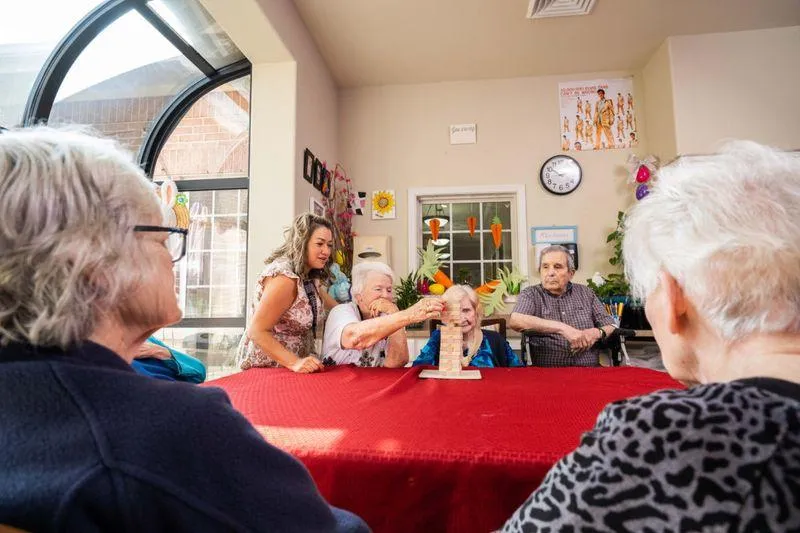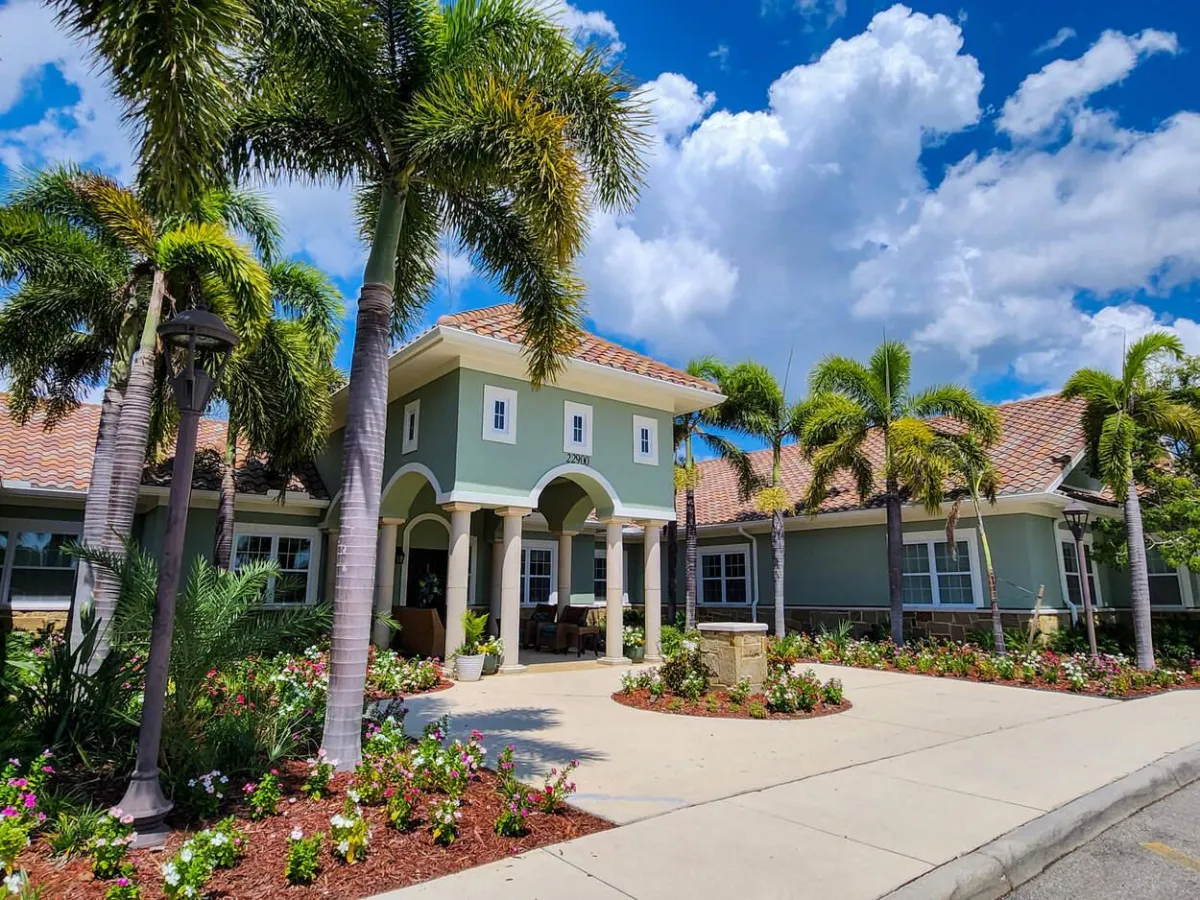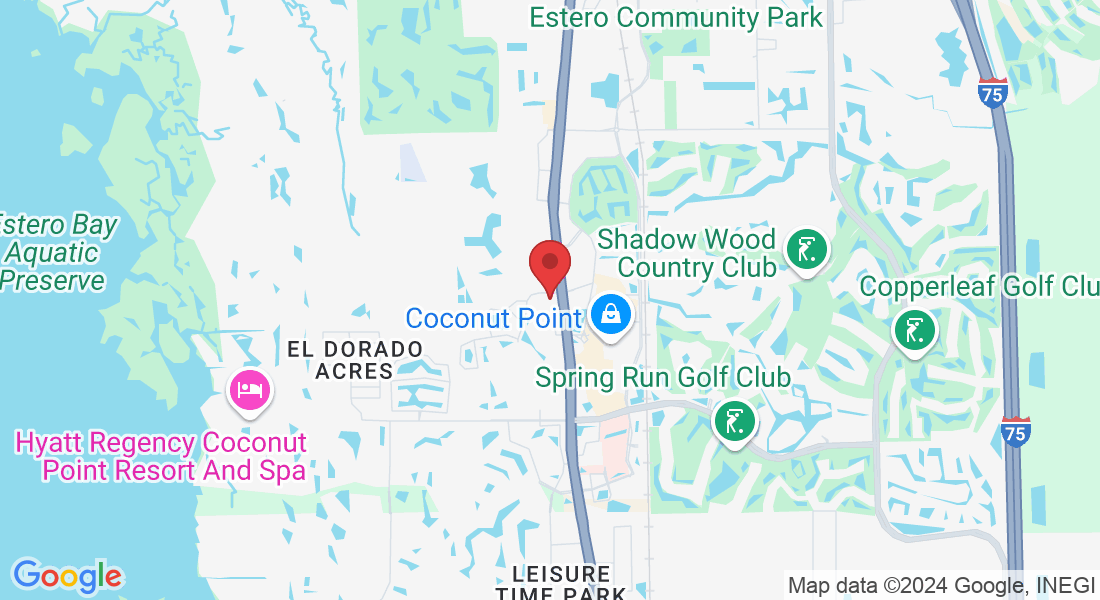Call Us: (239) 427-1455
This site is for families seeking memory care services. For employment inquiries, visit our Indeed page.
Memory Care Resources
Enjoy these articles on finding the right care for your loved one

Memory Care vs Nursing Home: 5 Key Differences to Know
Choosing the right care for a loved one can be a daunting task.
Especially when they are dealing with memory impairments like dementia or Alzheimer's disease.
You may have come across terms like 'memory care' and 'nursing home'. But what do they mean? And how do they differ?
This article aims to explain these two types of long-term care. We will explore the key differences between memory care communities and nursing homes.
Our goal is to help you make an informed decision that best suits the needs of your loved one.
Understanding Memory Care
Memory care is a specialized type of long-term care.
It is designed specifically for individuals with memory impairments. This includes conditions like Alzheimer's disease and other forms of dementia.
Memory care communities offer a safe and structured environment. They are equipped with features to prevent residents from wandering, a common behavior in people with dementia.
The staff in these communities receive specialized training. They are equipped to handle the unique challenges that come with memory impairments.
Here are some key features of memory care communities:
Specialized staff training
Structured environment
Security features to prevent wandering
Therapies and activities tailored to memory care
24-hour supervision
What is Memory Care?
Memory care is more than just a safe place for people with memory impairments.
It is a comprehensive approach to care that addresses the unique needs of these individuals. This includes their physical, emotional, and social needs.
The goal of memory care is to slow the progression of the disease. It also aims to improve quality of life and maintain the dignity of the residents.
The Role of Specialized Staff in Memory Care
The staff in memory care communities play a crucial role.
They are trained to understand the unique needs and behaviors of residents with memory impairments. This includes managing confusion, agitation, and other behavioral issues.
The staff also provide emotional support. They help residents maintain a sense of identity and dignity, despite their memory loss.
Nursing Homes Explained
Nursing homes, also known as skilled nursing communities, provide a different type of care.
They cater to individuals who more complex medical issues. This is for individuals with chronic illnesses or those recovering from surgery or illness.
The staff in nursing homes include registered nurses, licensed practical nurses, and nurse aides. They also have therapists and social workers.
Here are some key features of nursing homes:
Medical and personal care
Assistance with daily activities
24-hour supervision
Rehabilitation services
Social activities
What Nursing Homes Offer
Nursing homes offer a range of services.
These include medical care, personal care, and social activities. They also provide meals and housekeeping services.
The goal of nursing homes is to provide a safe and comfortable environment. They aim to meet the physical, medical, and social needs of their residents.
Medical and Personal Care in Nursing Homes
Medical care in nursing homes is comprehensive.
It includes medication management, wound care, and physical therapy. There are also services for chronic disease management.
Daily personal care is another key aspect. Staff assist residents with day-to-day activities like bathing, dressing, and eating. They also help with mobility and toileting.
Key Difference 1: Care Focus and Staff Training
The first key difference lies in the focus of care and staff training.
Memory care communities specialize in caring for individuals with memory impairments. Staff receive specific training to handle the unique challenges of dementia and Alzheimer's disease. This includes providing therapeutic activities and behavioral support.
On the other hand, nursing homes cater to a broader range of health issues. Their staff are trained to provide medical care and assist with daily activities. They also handle rehabilitation services for those recovering from surgery or illness.
Key Difference 2: Living Environment and Security
The living environment and security measures will differ between the two.
Memory care communities are designed to reduce confusion and agitation. They often feature simple layouts and secure outdoor spaces. Enhanced security measures prevent residents from wandering, a common issue in dementia patients.
In contrast, nursing homes provide a more traditional residential setting. They usually offer medical equipment and communities to cater to a variety of health needs similar to a hospital. However, they may not have specialized security features.
Key Difference 3: Therapies and Activities
Memory care communities offer a range of therapies and activities tailored to individuals with memory impairments. These may include music therapy, art therapy, and sensory stimulation activities. The goal is to slow cognitive decline and enhance quality of life.
Nursing homes may offer similar activities but not with a focus on accommodating memory impairments.
Key Difference 4: Cost and Payment Options
Memory care communities often cost more than nursing homes. This is due to the specialized care and higher staff-to-resident ratio. However, some costs may be covered by long-term care insurance or veterans' benefits.
Nursing homes, typically covered by most insurances, can still be a significant financial commitment. Medicare or Medicaid may cover some costs, but this depends on individual eligibility and state regulations.
It's crucial to understand the cost structure and payment options of each facility. This will help you make an informed decision that fits your financial situation.
Key Difference 5: Level of Independence and Quality of Life
Memory care communities prioritize maintaining residents' independence as much as possible. They offer structured activities and therapies that engage residents and promote a sense of purpose. This can greatly enhance their quality of life.
Nursing homes, on the other hand, provide a higher level of medical care. This can limit the level of independence for residents. However, they still offer social activities and personal care to ensure a good quality of life.
Making the Right Choice for Your Loved One
Choosing between memory care and a nursing home is a significant decision. Choosing between memory care and a nursing home is a significant decision. Be sure to consider personal needs, preferences, and health conditions.
Remember, the goal is to ensure the highest quality of life for your loved one. Always prioritize their comfort, safety, and well-being in your decision-making process.

Gulf Coast Memory Care
(239) 427-1455
22900 Lyden Dr, Estero, FL 33928
AL# 12921





